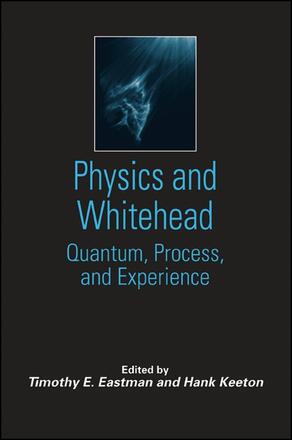
Physics and Whitehead
Quantum, Process, and Experience
Alternative formats available from:
Leading scholars explore the connections between quantum physics and process philosophy.
Description
Featuring discussions and dialogue by prominent scientists and philosophers, this book explores the rich interface of contemporary physics and Whitehead-inspired process thought. The contributors share the conviction that quantum physics not only corroborates many of Whitehead's philosophical theses, but is also illuminated by them. Thus, though differing in perspective or emphasis, the contributions by Geoffrey Chew, David Finkelstein, Henry Stapp and other scientists conceptually dovetail with those of Philip Clayton, Jorge Nobo, Yutaka Tanaka and other process philosophers.
Timothy E. Eastman is Group Manager for Space Science at NASA's Goddard Space Flight Center and a consultant in plasma science and technology. Hank Keeton is President of Keeton Construction Corporation and earned his Ph. D. in Philosophy at the Graduate Theological Union in Berkeley.
Reviews
"Eastman and Keeton have edited a remarkable collection of essays by prominent scientists and philosophers influenced by the process philosophy of A. N. Whitehead … An introduction by the series editor, dialogues at the end of each part of the book, a glossary, bibliography, and an index enhance the quality of this well-produced volume … Highly recommended. " — CHOICE
"Without question this book contains some outstanding and state-of-the-art essays on the very significant issue of the relation between Whitehead's philosophy and contemporary physics. This is a truly needed addition to the growing field of process studies and may well enhance the overall intellectual respectability of process thinking for a wide swath of intelligentsia. " — George W. Shields, editor of Process and Analysis: Whitehead, Hartshorne, and the Analytic Tradition
"What excites me most about this book is the effort of leading physicists to advance their reflections about physics through interaction with philosophy—primarily that of Whitehead. It also suggests that, after a long delay, cutting-edge scientists recognize the need of science for some of Whitehead's seminal ideas. " — John B. Cobb Jr. , Founding Co-director, Center for Process Studies
"This book is full of unexpected insights, new ideas, and useful suggestions. There is also a fascinating juxtaposition of philosophical and scientific viewpoints. " — Pete A. Y. Gunter, editor of Creativity in George Herbert Mead